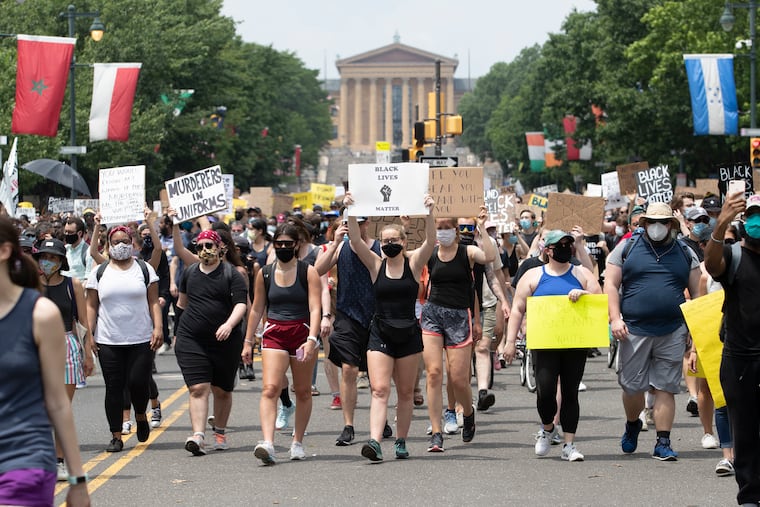Philadelphia Art Museum leaders apologize for word choices in Black Lives Matter message
Museum leaders sought to show sympathy and support for the protests, but their message struck a nerve they might have realized was raw.

In the midst of the Black Lives Matter protests, which have occasionally converged on the steps of the Philadelphia Museum of Art, the museum’s leaders sent a email to staff to acknowledge the importance of the unfolding events.
“At this historic moment of anger and protest … it is vitally important to reaffirm that every individual life matters," director Timothy Rub and president Gail Harrity wrote as part of a May 31 email to the institution’s nearly 500 employees.
The blowback was swift. Staff members were upset by the email’s language and said so.
“Your email asked us to join together to reaffirm that all individual lives matter,” one wrote. “To say this, despite the fact that the context of such sentiment is so well documented, was at the very least disappointing and for some, enraging. It plays into the minimization of what is happening in our communities and why people of all races are protesting around the country."
The leaders were also told: “We ask that you take a really good look at how race impacts the museum. From the staff makeup, to how they are treated, even to who gets the privilege of being considered staff, not contractors."
The email exchanges and the leaders’ reply were obtained by The Inquirer. The rebukes clearly hit Rub and Harrity hard.
“Thank you for your note and the honest, heartfelt feelings it expressed,” they responded, saying that the response email “was difficult — indeed, painful — to read."
While polling shows that support for the Black Lives Matter movement has grown dramatically in recent weeks, some critics have long sought to diminish it by saying that “all lives matter.” In their reply, the Art Museum leaders apologized for echoing that formulation.
“You were right to say that our letter did not make an obvious and essential point,” Rub and Harrity replied. “This victim of this murder was an innocent black man. Such a heinous act should not only be recognized and decried for this reason, but also understood as part of a longstanding pattern in this country of institutional violence visited upon African Americans, and most especially African American men.
“We certainly believe this to be true and apologize for not stating this explicitly. At this historic and deeply tragic moment, it is vitally important to affirm that black lives matter and that this is the issue at hand."
They added: “Institutions like ours, beginning with leadership but also extending into every aspect of work, have not done enough to acknowledge their own shortcomings.”
The museum has 481 employees, according to a spokesperson. Of those, 38 staff members are black, 8% of the workforce. Three department heads are black, as are two members of the executive office. (The uniformed guards in the galleries work for an outside firm and are not reflected in these numbers.)
“We must and will do more," Rub and Harrity vowed in their email.
Rub and Harrity followed in the footsteps of other top museum officials nationally.
In recent statements — made publicly, unlike Rub’s and Harrity’s internal message to staff — leaders of the Getty Museum in Los Angeles and the San Francisco Museum of Art failed to mention either the black community or George Floyd, whose death sparked a worldwide movement.
Like the Philadelphia leaders, the executives of the Getty and the San Francisco museum said they were sorry and promised to do better.